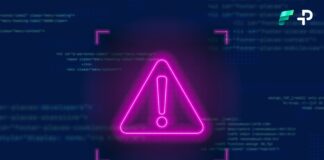In the digital age of hyperconnectivity, data has become crucial for businesses and individuals alike, making cyber security a top priority for organizations. As cyberattacks continue to increase and grow more sophisticated, the security of information—data integrity, confidentiality, and availability—is increasingly threatened. This highlights the essential role of cybersecurity audits, a critical process that evaluates and fortifies IT infrastructures against emerging cyber threats. This article will explore the significance of cybersecurity audits, their objectives, and the proactive measures they promote to safeguard sensitive data and mitigate online threats effectively.
What is a Cybersecurity Audit?
A cybersecurity audit, also referred to as an IT security audit, is a structured evaluation process that assesses the security controls implemented within an organization. Its primary goal is to identify potential vulnerabilities, gaps in security practices, and exploitable weaknesses that cybercriminals could target. By pinpointing these issues, companies can proactively enhance their security stance and mitigate the severe impacts of cyberattacks on their information systems and network.
Key steps of a cybersecurity audit include:
- Digital Asset Inventory: Identifying all of the company’s digital resources, including servers, databases, applications, connected devices, and more.
- Risk Assessment: Evaluating potential threats faced by the organization and assessing the impact of information security breaches.
- Security Policies and Procedures analysis: Reviewing existing security policies and procedures to ensure they are up to date, complete, and properly applied across the network.
- Vulnerability testing: Performing technical tests to identify security flaws and system vulnerabilities in the organization’s information systems.
- Review of monitoring and detection mechanisms: Verifying that incident monitoring and detection tools are in place and are operational and effective controls.
- Incident Management Assessment: Verifying that incident response plans have been developed and staff trained to respond.
Benefits of a Cybersecurity Audit
A cyber security audit has many benefits for businesses and organizations of all sizes:
Identifying Weaknesses
By conducting a cyber security audit, companies can uncover weaknesses in their infrastructure and security practices. This then allows them to implement targeted corrective actions to bolster their overall safety measures. Through auditing, organizations can identify issues like software vulnerabilities and unusual behaviors, such as sudden spikes in network traffic or unauthorized attempts to access accounts with incorrect passwords.
Preventing Against Cyberattacks
By proactively detecting and addressing vulnerabilities, a cybersecurity audit helps prevent potential cyberattacks and significantly reduces the risk of data breaches. This proactive approach allows companies to mitigate the potential consequences, including financial losses, reputational damage, and data loss, thereby safeguarding their operations and stakeholders.
Regulatory Compliance
In many industries, businesses are obligated to meet stringent data protection and IT security regulations. Performing a cybersecurity audit is crucial to verifying compliance with these legal obligations. It aims to uncover and rectify any gaps between the company’s existing security protocols and regulatory mandates. This includes addressing potential violations concerning the safeguarding of personal data, management of access to sensitive information, handling of credentials, and ensuring robust network security measures.
After completing this phase, auditors provide precise recommendations to close gaps and bolster security measures. These suggestions may include implementing technical upgrades, refining organizational processes, and conducting staff training to ensure compliance with regulatory standards.
Benefits of Automated Audits
Integrating automation into cybersecurity audits offers significant advantages, enabling companies to optimize their security more effectively and efficiently. Here are the main benefits of automated auditing:
Speed and efficiency
Automated auditing tools can rapidly analyze large quantities of data and systems, much faster than a manual audit. This means that vulnerabilities can be identified and corrected in less time, minimizing the exposure to risk.
Continuous detection of vulnerabilities
Unlike traditional audits, which are often conducted on a case-by-case basis, automated solutions enable continuous monitoring. They detect new threats in real time and ensure constant protection by immediately alerting you to any suspicious activity or security flaws.
Reduced human error
Automation reduces the risk of human error that can occur during manual audits. Automated tools apply standardized and consistent methods, guaranteeing a complete and accurate assessment of safety systems.
Cost-effectiveness
Although the initialization of automated auditing tools may represent an investment, their long-term use can be more cost-effective. They reduce the need for a large workforce for repetitive tasks, and free up human resources to focus on strategic aspects of cybersecurity.
Simplified compliance
Automated auditing tools can be configured to track specific regulatory requirements, facilitating compliance with current standards and laws. They can generate detailed, regulatory-compliant reports, simplifying certification and verification processes.
Continuous improvement
Automated systems are able to adapt and evolve with emerging threats. Thanks to regular updates and artificial intelligence, they can learn from new vulnerabilities and adjust their detection and protection methods accordingly.
To offer you the very best in auditing, we have forged a strategic partnership with Menaya, a turnkey cybersecurity auditing solution. With its Cyber Rating and Cyber Web Detection functionalities, it enables you to monitor, anticipate and prevent risks.
Best Practices for Enhanced Cybersecurity
After conducting a cybersecurity audit, it is essential to implement corrective measures to strengthen security. Key best practices include:
Cybersecurity Awareness
Regular cybersecurity training is crucial for employees to enhance their awareness of threats. Well-informed employees are less likely to fall victim to cybercriminal tactics, such as phishing.
Regular Software Updates
Make sure to regularly update all software used in the organization with the latest security patches. This is essential because cyber attackers frequently exploit known vulnerabilities, which can be mitigated through consistent updates.
Access Controls and Privilege Management
Enforce strict access controls and effective privilege management to limit access to sensitive data and systems solely to authorized personnel. Additionally, following cybersecurity audit recommendations, implement advanced monitoring mechanisms to swiftly detect and respond to any suspicious activities or potential intrusions. This proactive approach enhances the organization’s capacity to prevent and mitigate security incidents comprehensively.
The cybersecurity audit is a crucial process for organizations committed to safeguarding sensitive data and preventing cyberattacks. By identifying vulnerabilities and implementing robust security measures, companies can enhance their security posture and defend against rising online threats. Taking a proactive stance on cybersecurity is vital to safeguarding the business’s reputation, earning customer trust, and securing confidential data.
Explore Prodware’s comprehensive cybersecurity solutions portfolio, encompassing audit, organization, prevention, protection, and remediation services. Dive into the details and reach out to our experts today!






